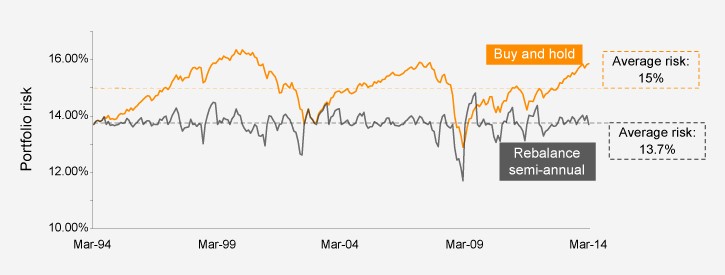TopPerforming Diversified for the Year Through March 2012
Post on: 18 Август, 2015 No Comment

Top-performing funds ride large-cap stocks to glory
The stock-market rally that kicked off last October and has propelled the Standard & Poor’s 500-stock index to more than a 25% advance since then has been a boon for many mutual funds that invested in some of the largest-cap growth stocks. Few have more reason to celebrate than Mark Mulholland, whose 15-year-old Matthew 25 Fund returned 23.5% to shareholders this year through March 31 and generated a 25.1% return in the 12 months ended March 31.
ENLARGE
The other sub-adviser is Sands Capital Management LLC, manager of the institutional fund Touchstone Sands Capital Institutional Growth. which finished third for the quarter, as well as Touchstone Sands Capital Select Growth. whose 20.4% return put it in fourth place. (Sands Capital Management didn’t return calls seeking comment.) These rankings are based on preliminary data from Morningstar Inc. for funds with at least $50 million in assets and a three-year track record. Index funds, leveraged index funds and inverse leveraged funds are excluded.
Both managers are scouring the landscape for attractive and still-undervalued companies with above-average growth potential. Some may be household names: Mr. Van Harte is a fan of Priceline.com Inc. ‘s expansion into Europe’s more fragmented online travel-booking market, while Mr. Mulholland’s fund has benefited from his decision to buy El Paso Corp. about to be acquired by Kinder Morgan Inc.
ENLARGE
Other stocks are less familiar or perhaps less likely to be seen as must own large-cap growth stocks. For instance, Mr. Mulholland shrugs off the black cloud that seems to hang over Goldman Sachs Group Inc. and Citigroup Inc. ; his fund, which has $107 million in assets, owns stakes in both banks. Yes, they are still hard to value today, and they have a macro risk because of the continuing European crisis, he says, but he believes they are attractive on a three-to-five-year horizon.
Great Outdoors
Mr. Mulholland, an outdoorsman, also likes Cabela’s Inc. a Nebraska-based retailer of hunting, fishing and camping equipment that has an online division and a growing array of stores in addition to its catalog business. While he deemed it too pricey to buy immediately after its 2004 IPO, Mr. Mulholland began buying it in 2008. You could get as much as you wanted between $5 and $6 a share, he says. Today, the same stock changes hands for $38 a share but trades at only about 13 times this year’s estimated earnings. It now makes up about 7% of Mr. Mulholland’s fund, and he says he won’t sell it anytime soon.

Mr. Van Harte’s team has a similar penchant for stocks in market niches that appear to be growing rapidly. Consumers are more willing to buy private-label health-care products offered by drugstores; that trend has buoyed sales and profits at Perrigo Co. He also is a fan of Crown Castle International Corp. a wireless-tower company; as consumers keep buying iPhones and iPads, demand for wireless coverage will surge, meaning every wireless-tower company will be able to generate more revenue per tower.
One of the toughest jobs for top fund managers may be monitoring relative values in their portfolios in the wake of the stock-market rally. If you are holding on to something, you need to be confident that it is still de facto a ‘buy,’ that if you were building your portfolio from scratch today it would still be in your portfolio, Mr. Mulholland says.
That sometimes pushes him to lighten up holdings of stocks he still likes, such as Polaris Industries Inc. a maker of motorcycles and all-terrain vehicles. Most of the products it competes with are manufactured in Japan, and so it got a boost in sales and profits that may not be permanent in the wake of last year’s earthquake and tsunami in Japan. That’s why he cut the stock’s weighting in the portfolio to 4% from 9%. To stay ahead of the game, you have to be prepared to sell stocks you might still love, in order to add those that will do even better for your investors, he says.
Ms. McGee is a writer in New York. She can be reached at reports@wsj.com .














